Peanuts, often mistaken as nuts, are actually legumes packed with incredible nutrients and health benefits. This humble legume, scientifically known as Arachis hypogaea, is widely consumed worldwide in various forms, from creamy peanut butter to crunchy roasted peanuts. In this comprehensive guide, we will delve into the nutritional profile, health benefits, culinary uses, and potential risks associated with peanuts. The Nutritional Profile of Peanuts: Peanuts are a rich source of essential nutrients, making them a valuable addition to a balanced diet. They are particularly known for their high content of protein, healthy fats, vitamins, and minerals. A 1-ounce (28-gram) serving of peanuts provides approximately 7 grams of protein, making them an excellent plant-based protein source for vegetarians and vegans. Furthermore, peanuts are loaded with heart-healthy monounsaturated and polyunsaturated fats, including omega-6 fatty acids.
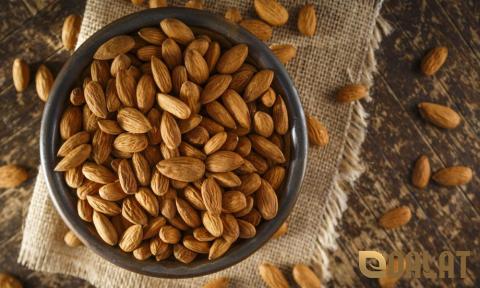
.
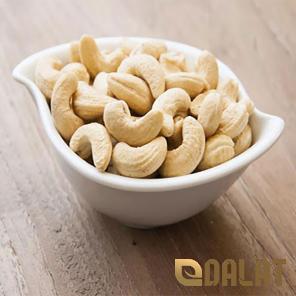 These fats can help lower bad cholesterol levels and reduce the risk of heart disease when consumed in moderation. Peanuts also contain fiber, which aids digestion and promotes satiety, ultimately supporting weight management. In terms of micronutrients, peanuts are a good source of vitamin E, an antioxidant that helps protect cells from damage. They also provide various B vitamins, including niacin, folate, and riboflavin, which play essential roles in energy production and metabolism. Additionally, peanuts are rich in minerals such as magnesium, phosphorus, and potassium, which are vital for bone health, muscle function, and electrolyte balance. Health Benefits of Peanuts: The consumption of peanuts has been linked to numerous health benefits, thanks to their nutrient-dense profile. One notable benefit is their potential to reduce the risk of cardiovascular disease. Studies suggest that the monounsaturated fats and antioxidants in peanuts can help lower blood pressure, improve lipid profiles, and reduce inflammation, all of which are factors associated with heart health. Moreover, peanuts have been shown to support weight management due to their protein and fiber content, which can increase feelings of fullness and reduce overall calorie intake. Including peanuts in a balanced diet may help prevent overeating and aid in weight loss or maintenance efforts. Peanuts are also a good source of plant compounds, such as resveratrol and phytosterols, which possess antioxidant and anti-inflammatory properties. These compounds may contribute to reducing the risk of chronic diseases, including certain types of cancer and neurodegenerative conditions. Culinary Uses of Peanuts: Peanuts are incredibly versatile and can be incorporated into a wide range of culinary dishes, both savory and sweet. One of the most popular uses of peanuts is in the form of peanut butter, a creamy spread made from roasted peanuts.
These fats can help lower bad cholesterol levels and reduce the risk of heart disease when consumed in moderation. Peanuts also contain fiber, which aids digestion and promotes satiety, ultimately supporting weight management. In terms of micronutrients, peanuts are a good source of vitamin E, an antioxidant that helps protect cells from damage. They also provide various B vitamins, including niacin, folate, and riboflavin, which play essential roles in energy production and metabolism. Additionally, peanuts are rich in minerals such as magnesium, phosphorus, and potassium, which are vital for bone health, muscle function, and electrolyte balance. Health Benefits of Peanuts: The consumption of peanuts has been linked to numerous health benefits, thanks to their nutrient-dense profile. One notable benefit is their potential to reduce the risk of cardiovascular disease. Studies suggest that the monounsaturated fats and antioxidants in peanuts can help lower blood pressure, improve lipid profiles, and reduce inflammation, all of which are factors associated with heart health. Moreover, peanuts have been shown to support weight management due to their protein and fiber content, which can increase feelings of fullness and reduce overall calorie intake. Including peanuts in a balanced diet may help prevent overeating and aid in weight loss or maintenance efforts. Peanuts are also a good source of plant compounds, such as resveratrol and phytosterols, which possess antioxidant and anti-inflammatory properties. These compounds may contribute to reducing the risk of chronic diseases, including certain types of cancer and neurodegenerative conditions. Culinary Uses of Peanuts: Peanuts are incredibly versatile and can be incorporated into a wide range of culinary dishes, both savory and sweet. One of the most popular uses of peanuts is in the form of peanut butter, a creamy spread made from roasted peanuts.
..
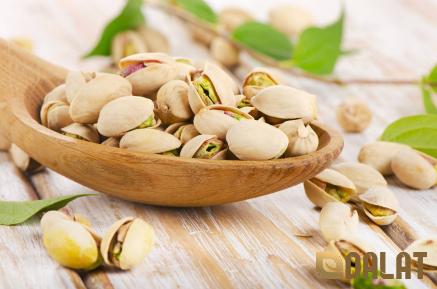 Peanut butter can be enjoyed on toast, in sandwiches, or as a dip for fruits and vegetables, providing a delicious and nutritious snack option. Roasted peanuts are a classic snack that can be enjoyed on their own or as part of trail mixes and snack bars. They can also be used as a topping for salads, soups, and stir-fries, adding a crunchy texture and nutty flavor to dishes. In Asian cuisine, peanuts are commonly used in sauces, marinades, and noodle dishes, imparting a rich and savory taste. Peanuts can also be ground into flour and used in baking to create gluten-free treats like peanut butter cookies, brownies, and cakes. The nutty flavor of peanuts pairs well with chocolate, banana, and honey, resulting in decadent desserts that are both delicious and nutritious. Potential Risks of Peanuts: Despite their numerous health benefits, peanuts may pose risks for individuals with allergies or specific health conditions. Peanut allergies are among the most common food allergies globally, affecting both children and adults. Allergic reactions to peanuts can range from mild symptoms like hives and itching to severe reactions such as anaphylaxis, which can be life-threatening. Due to the prevalence of peanut allergies, it is crucial for individuals with allergies to avoid peanuts and products containing peanuts to prevent adverse reactions. In some cases, cross-contamination can occur in food processing facilities, leading to unintended exposure to peanuts. Therefore, it is essential to read food labels carefully and inquire about ingredient information when dining out. Additionally, some individuals may have sensitivities to lectins and phytic acid found in peanuts, which can interfere with nutrient absorption and digestive health. For those with gastrointestinal conditions like irritable bowel syndrome (IBS) or leaky gut syndrome, consuming large amounts of peanuts may exacerbate symptoms and trigger digestive distress. Conclusion: In conclusion, peanuts are a nutrient-dense food with a wide array of health benefits, ranging from cardiovascular support to weight management and beyond. Incorporating peanuts into a balanced diet can provide essential nutrients, promote satiety, and contribute to overall well-being. However, it is crucial to be mindful of potential risks, especially for individuals with peanut allergies or digestive sensitivities. Whether enjoyed as a crunchy snack, creamy spread, or flavorful ingredient in culinary creations, peanuts offer versatility and deliciousness in every bite.
Peanut butter can be enjoyed on toast, in sandwiches, or as a dip for fruits and vegetables, providing a delicious and nutritious snack option. Roasted peanuts are a classic snack that can be enjoyed on their own or as part of trail mixes and snack bars. They can also be used as a topping for salads, soups, and stir-fries, adding a crunchy texture and nutty flavor to dishes. In Asian cuisine, peanuts are commonly used in sauces, marinades, and noodle dishes, imparting a rich and savory taste. Peanuts can also be ground into flour and used in baking to create gluten-free treats like peanut butter cookies, brownies, and cakes. The nutty flavor of peanuts pairs well with chocolate, banana, and honey, resulting in decadent desserts that are both delicious and nutritious. Potential Risks of Peanuts: Despite their numerous health benefits, peanuts may pose risks for individuals with allergies or specific health conditions. Peanut allergies are among the most common food allergies globally, affecting both children and adults. Allergic reactions to peanuts can range from mild symptoms like hives and itching to severe reactions such as anaphylaxis, which can be life-threatening. Due to the prevalence of peanut allergies, it is crucial for individuals with allergies to avoid peanuts and products containing peanuts to prevent adverse reactions. In some cases, cross-contamination can occur in food processing facilities, leading to unintended exposure to peanuts. Therefore, it is essential to read food labels carefully and inquire about ingredient information when dining out. Additionally, some individuals may have sensitivities to lectins and phytic acid found in peanuts, which can interfere with nutrient absorption and digestive health. For those with gastrointestinal conditions like irritable bowel syndrome (IBS) or leaky gut syndrome, consuming large amounts of peanuts may exacerbate symptoms and trigger digestive distress. Conclusion: In conclusion, peanuts are a nutrient-dense food with a wide array of health benefits, ranging from cardiovascular support to weight management and beyond. Incorporating peanuts into a balanced diet can provide essential nutrients, promote satiety, and contribute to overall well-being. However, it is crucial to be mindful of potential risks, especially for individuals with peanut allergies or digestive sensitivities. Whether enjoyed as a crunchy snack, creamy spread, or flavorful ingredient in culinary creations, peanuts offer versatility and deliciousness in every bite.
…
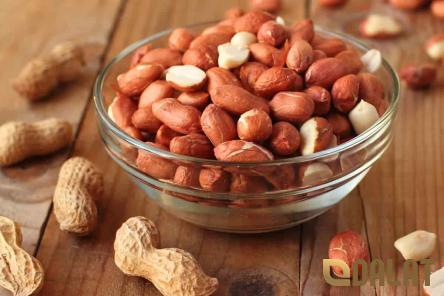 By understanding the nutritional profile, health benefits, culinary uses, and potential risks of peanuts, individuals can make informed choices about including this powerhouse legume in their diet. So, go ahead and savor the mighty peanut in all its forms, knowing that you are nourishing your body and delighting your taste buds simultaneously. Key Points to Remember when including peanuts in your diet: 1. **Nutrient-Dense**: Peanuts are packed with protein, healthy fats, vitamins, and minerals, making them a valuable addition to a balanced diet. 2. **Heart-Healthy**: The monounsaturated fats and antioxidants in peanuts can promote heart health by lowering bad cholesterol levels and reducing inflammation. 3. **Weight Management**: The protein and fiber content in peanuts can help increase feelings of fullness, leading to reduced calorie intake and potential weight loss or maintenance. 4. **Antioxidant Properties**: Peanuts contain plant compounds like resveratrol and phytosterols, which have antioxidant and anti-inflammatory properties that may help reduce the risk of chronic diseases. 5. **Versatile Culinary Uses**: From creamy peanut butter to crunchy roasted peanuts, peanuts can be utilized in a variety of savory and sweet dishes, adding flavor, texture, and nutrition. 6. **Allergy Awareness**: Individuals with peanut allergies need to be cautious and avoid peanuts to prevent allergic reactions, as even small amounts can trigger severe symptoms. 7. **Digestive Sensitivities**: Those with digestive conditions like IBS should monitor their intake of peanuts, as lectins and phytic acid could worsen symptoms. In conclusion, peanuts are a powerhouse of nutrition that can benefit overall health when consumed as part of a balanced diet. By understanding their nutritional value, health benefits, culinary versatility, and potential risks, individuals can make informed choices about incorporating peanuts into their daily meals. Whether enjoyed as a simple snack or a gourmet ingredient, the mighty peanut deserves its status as a beloved and beneficial food. So, go ahead and embrace the goodness of peanuts in all their forms, knowing that you are nourishing your body and satisfying your taste buds at the same time.
By understanding the nutritional profile, health benefits, culinary uses, and potential risks of peanuts, individuals can make informed choices about including this powerhouse legume in their diet. So, go ahead and savor the mighty peanut in all its forms, knowing that you are nourishing your body and delighting your taste buds simultaneously. Key Points to Remember when including peanuts in your diet: 1. **Nutrient-Dense**: Peanuts are packed with protein, healthy fats, vitamins, and minerals, making them a valuable addition to a balanced diet. 2. **Heart-Healthy**: The monounsaturated fats and antioxidants in peanuts can promote heart health by lowering bad cholesterol levels and reducing inflammation. 3. **Weight Management**: The protein and fiber content in peanuts can help increase feelings of fullness, leading to reduced calorie intake and potential weight loss or maintenance. 4. **Antioxidant Properties**: Peanuts contain plant compounds like resveratrol and phytosterols, which have antioxidant and anti-inflammatory properties that may help reduce the risk of chronic diseases. 5. **Versatile Culinary Uses**: From creamy peanut butter to crunchy roasted peanuts, peanuts can be utilized in a variety of savory and sweet dishes, adding flavor, texture, and nutrition. 6. **Allergy Awareness**: Individuals with peanut allergies need to be cautious and avoid peanuts to prevent allergic reactions, as even small amounts can trigger severe symptoms. 7. **Digestive Sensitivities**: Those with digestive conditions like IBS should monitor their intake of peanuts, as lectins and phytic acid could worsen symptoms. In conclusion, peanuts are a powerhouse of nutrition that can benefit overall health when consumed as part of a balanced diet. By understanding their nutritional value, health benefits, culinary versatility, and potential risks, individuals can make informed choices about incorporating peanuts into their daily meals. Whether enjoyed as a simple snack or a gourmet ingredient, the mighty peanut deserves its status as a beloved and beneficial food. So, go ahead and embrace the goodness of peanuts in all their forms, knowing that you are nourishing your body and satisfying your taste buds at the same time.
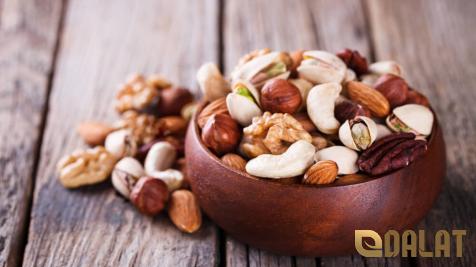
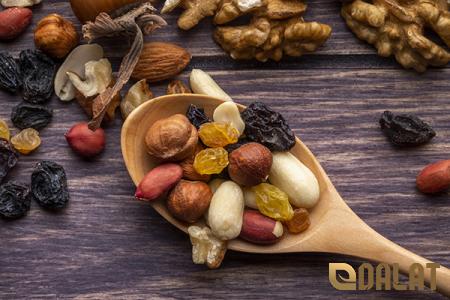
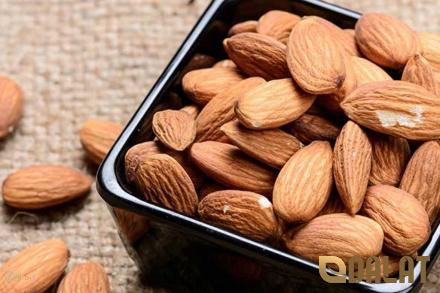
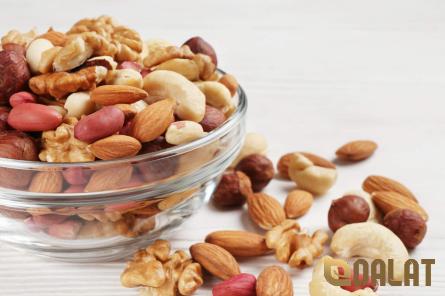
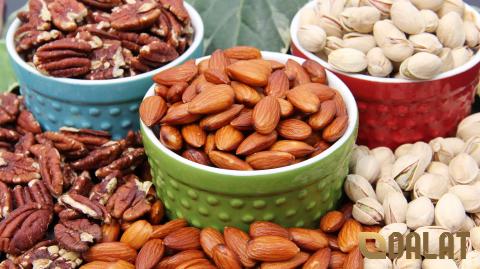
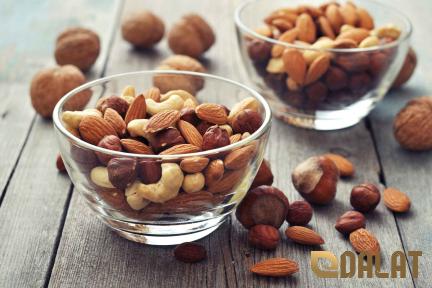
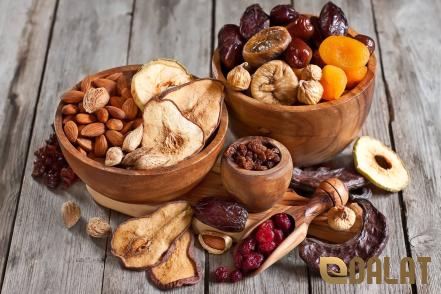
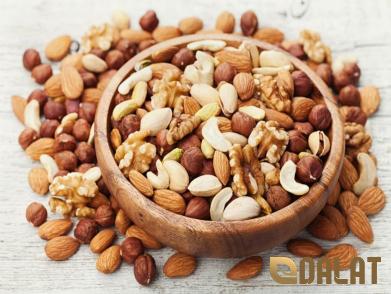
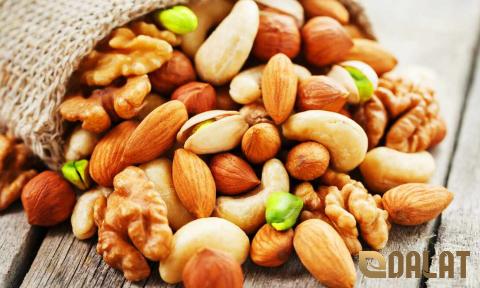
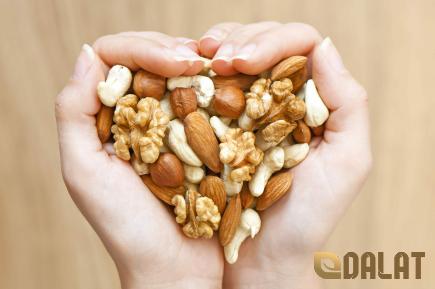
Your comment submitted.